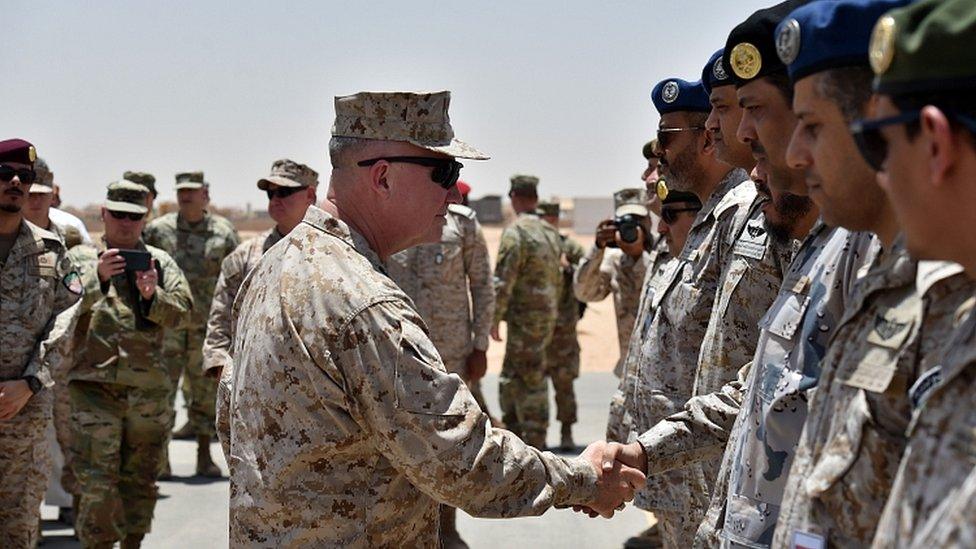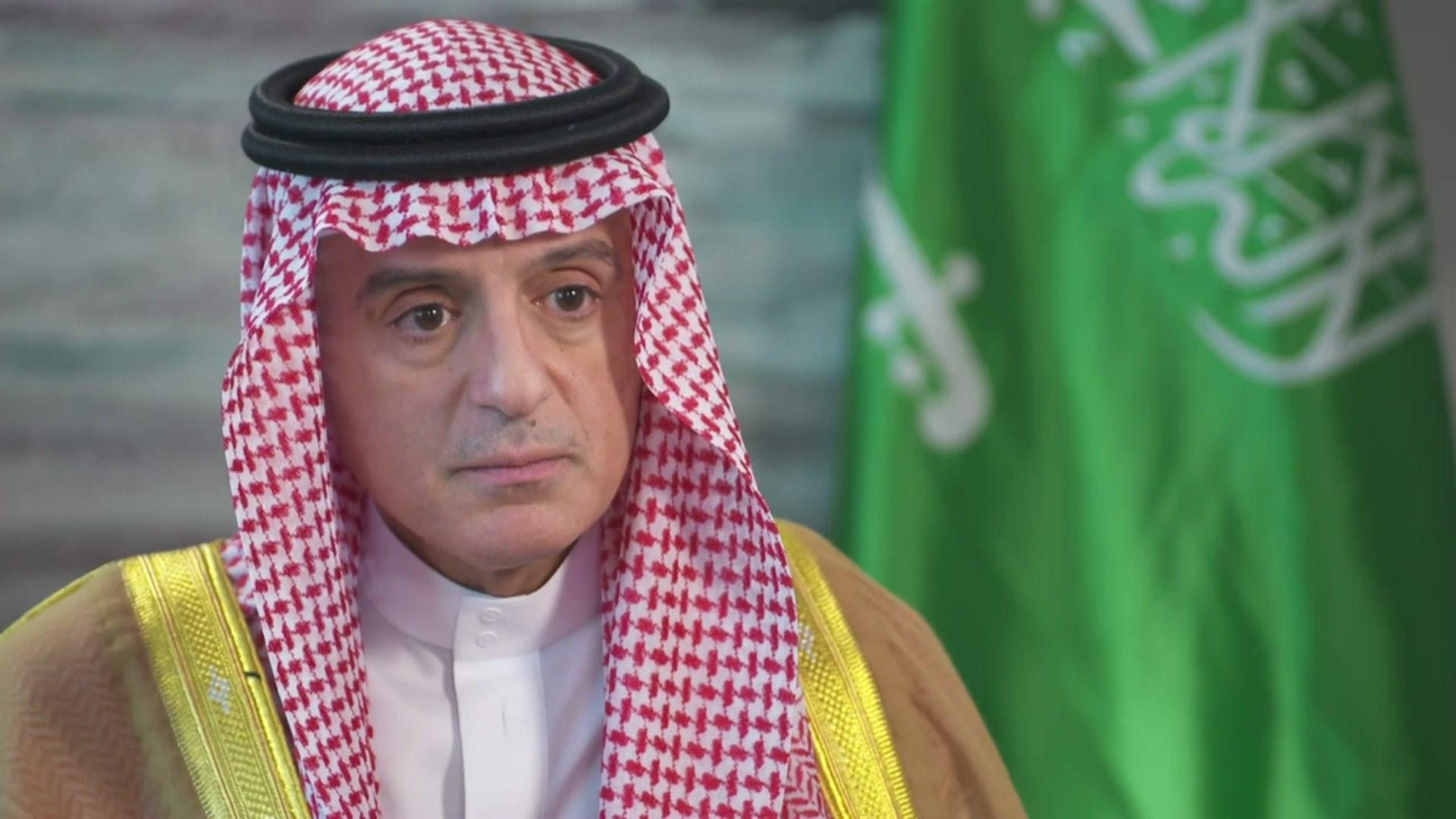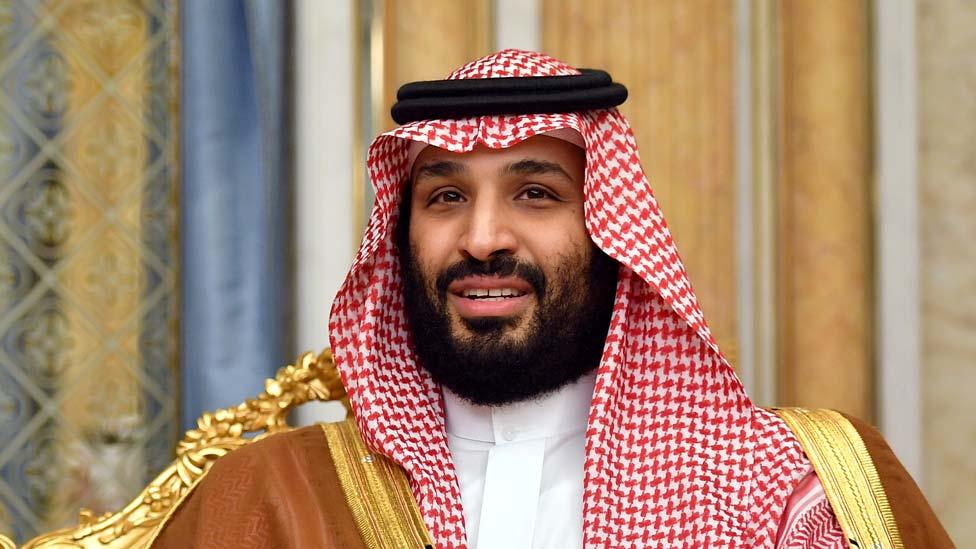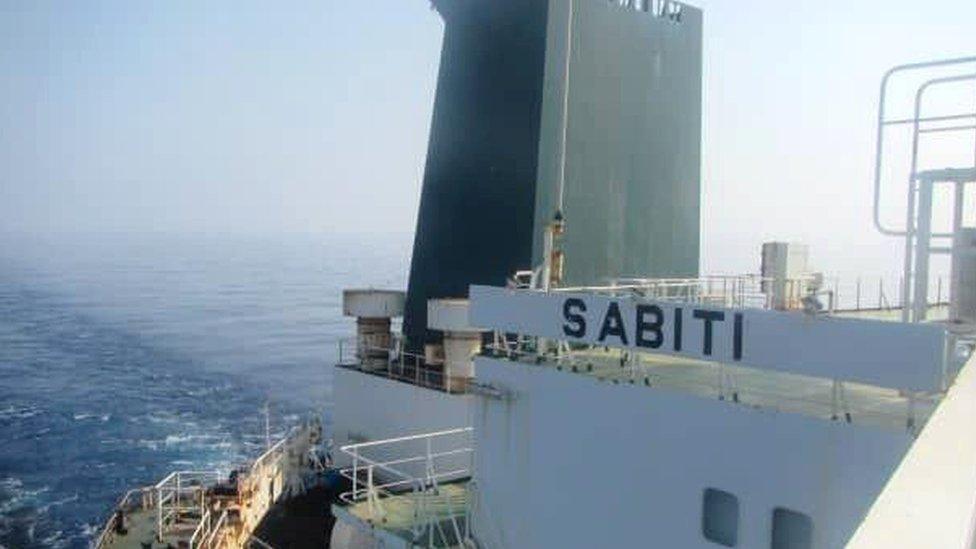Saudi Arabia oil attacks: US to deploy thousands of extra troops
- Published

The deployment aims to enhance the defence of Saudi Arabia, the Pentagon says
The Pentagon has announced the deployment of thousands of additional troops to "enhance the defence of Saudi Arabia".
US Secretary of Defence Mark Esper says he has authorised the deployment of additional forces, including fighter jets and a defence system.
He said it was in response to "threats in the region", amid efforts to protect the kingdom from "Iranian aggression".
The move comes after an attack on Saudi Arabia's oil facilities in September.
"Taken together with other deployments, this constitutes an additional 3,000 forces that have been extended or authorised within the last month," Pentagon spokesman Jonathan Hoffman said.
The US has increased the deployment of forces in the region by 14,000 since May, according to CNN. Saudi Crown Prince Mohammed bin Salman had requested additional support, Mr Esper said.
The attack on Saudi oil facilities knocked out 5% of global oil supply and sent oil prices soaring. Both Saudi Arabia and the US blame Iran for the incident.
Mohammed bin Salman said: "If the world does not take a strong and firm action to deter Iran, we will see further escalations that will threaten world interests."
Iran has denied allegations it was behind the attack.
However the leaders of France, Germany and the UK said in a joint statement that there was no other plausible explanation for the attacks.
Mr Esper told reporters at the Pentagon on Friday that the evidence from other recent attacks in the region proved Iran was to blame.
Saudi Arabia says the direction of the strikes showed the missiles could not have come from Yemen
He said the "malign behaviour" was a part of the country's "larger campaign to destabilise the Middle East and disrupt the global economy".
"Iran's attempts to use terror, intimidation and military force to advance its interests are inconsistent with international norms," Mr Esper added.
"Saudi Arabia is a longstanding security partner in the Middle East and has asked for addition support to supplement their own defences and defend the international rules-based order."

Always on the verge of coming home
Analysis by Gary O'Donoghue, BBC Washington correspondent
You would be forgiven for feeling confused about President Trump's attitude to US military deployments in the Middle East.
At one point in the past few days he was tweeting about the "trillions of dollars" that America had wasted on "endless wars" in the region and vowing that the US would "back out" of Middle East conflicts.
Yet here we are with a further 3,000 service personnel and a bunch of hardware heading for Saudi Arabia and the region - making a net 17,000 increase in troop numbers since May.
So unquestionably the rhetoric and the reality are in conflict.
President Trump is not the first incumbent of the White House to face these contradictory pressures.
President Barack Obama had to reverse his pledge in 2015 to bring all American troops, bar a handful, home from Afghanistan. There are 14,000 of them there to this day.
And the 2011 withdrawal of troops from Iraq had to be revisited when the vacuum left created space for al-Qaeda and then the Islamic State group.
The truth is that as a world superpower, America's national interest cannot be contained within the bounds of the two shining seas that many of the early political pioneers thought would protect it from foreign entanglements.
Yet the president, in similar fashion to some of his predecessors, has to persist in the assertion that troops are always on the verge of coming home. He and they do it for sound political reasons: that's what the American people, in general, want to hear.

President Donald Trump has often defended the US relationship with Saudi Arabia and its leader, calling the kingdom a vital ally with a record amount of investments in the US.
But lawmakers on both sides of the aisle have cast a critical eye over the kingdom since the murder of journalist Jamal Khashoggi and Saudi involvement in the civil war in Yemen.
In June, the Republican-controlled Senate voted to block the sale of billions of dollars' worth of weapons to Saudi Arabia in a rebuke of Mr Trump.
US lawmakers have expressed concerns that Saudi-led forces would use the weapons against civilians in Yemen.
As the US prepares to send more support to the kingdom, Mr Trump has also faced pushback from Congress on his decision to pull troops from Syria.
Senate Republican leader Mitch McConnell and Trump ally Senator Lindsey Graham both criticised the withdrawal as irresponsible, saying it risks allowing terrorist organisations to regroup.
On Monday, Mr Trump defended the move, saying: "We want to bring our soldiers back home. These are endless wars."
The president has been vocal about the matter on Twitter this week, calling US involvement in the Middle East the "worst decision ever made in the history of our country".
Allow X content?
This article contains content provided by X. We ask for your permission before anything is loaded, as they may be using cookies and other technologies. You may want to read X’s cookie policy, external and privacy policy, external before accepting. To view this content choose ‘accept and continue’.

Allow X content?
This article contains content provided by X. We ask for your permission before anything is loaded, as they may be using cookies and other technologies. You may want to read X’s cookie policy, external and privacy policy, external before accepting. To view this content choose ‘accept and continue’.

- Published26 September 2019

- Published30 September 2019

- Published11 October 2019
